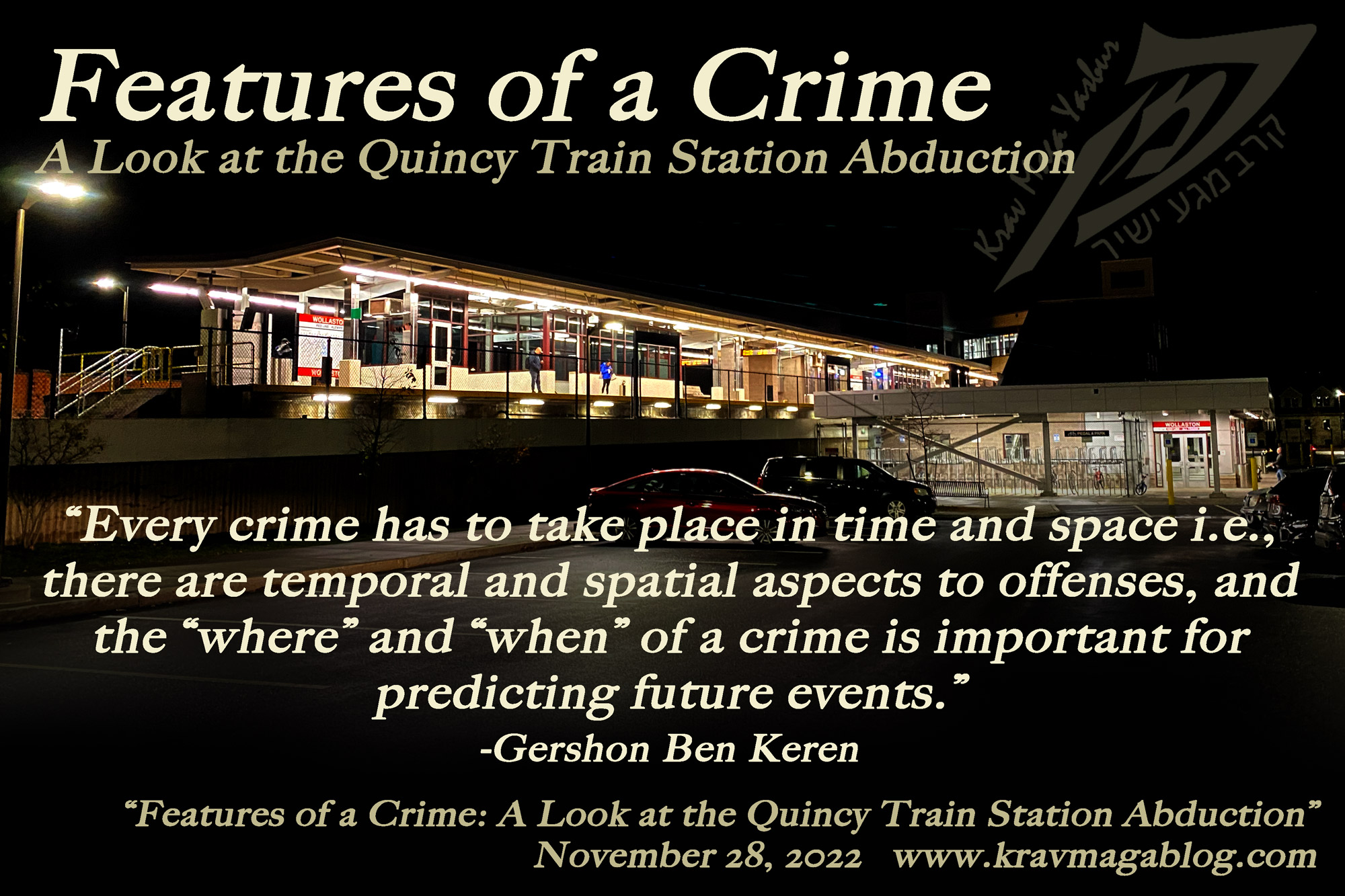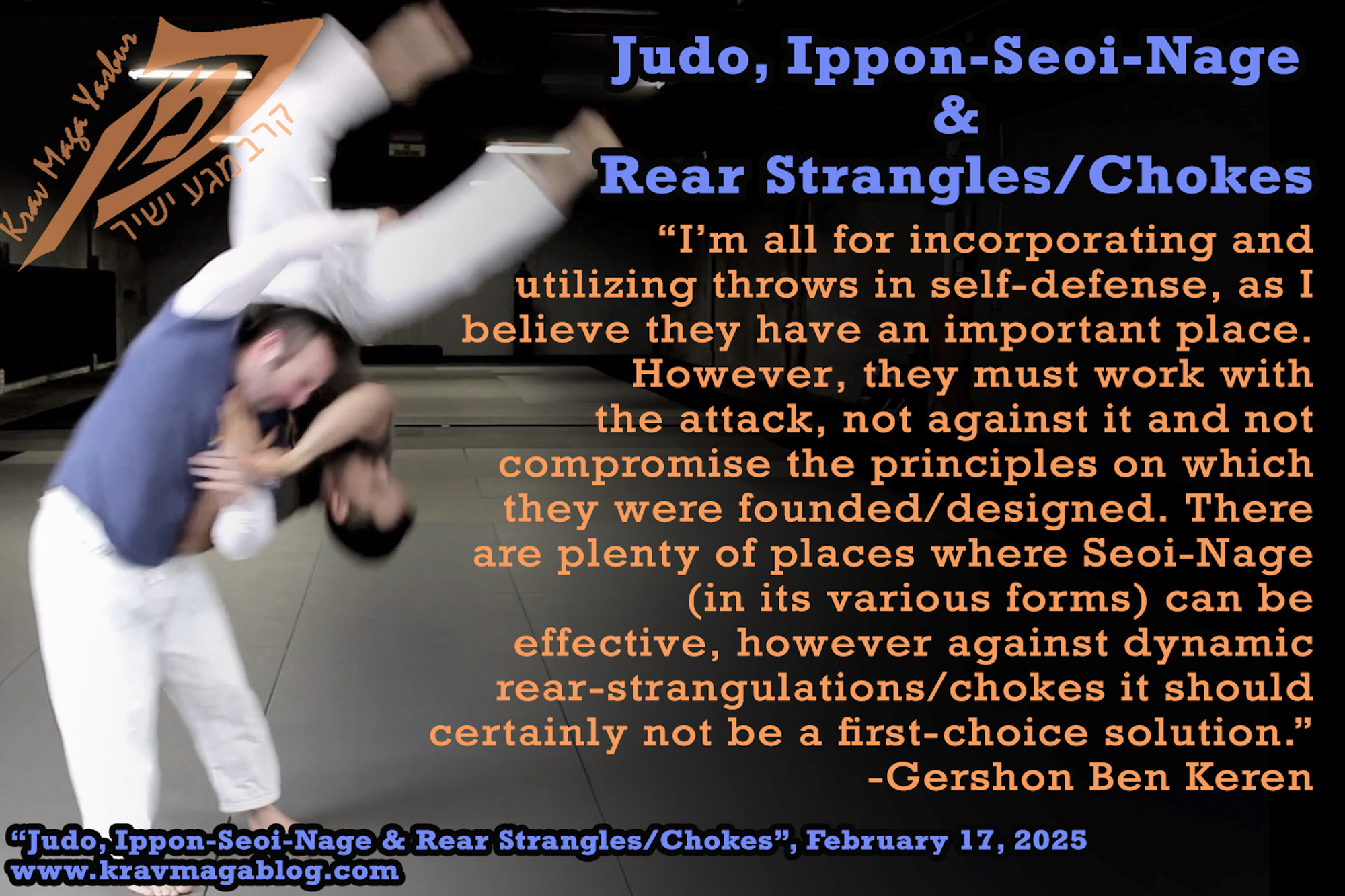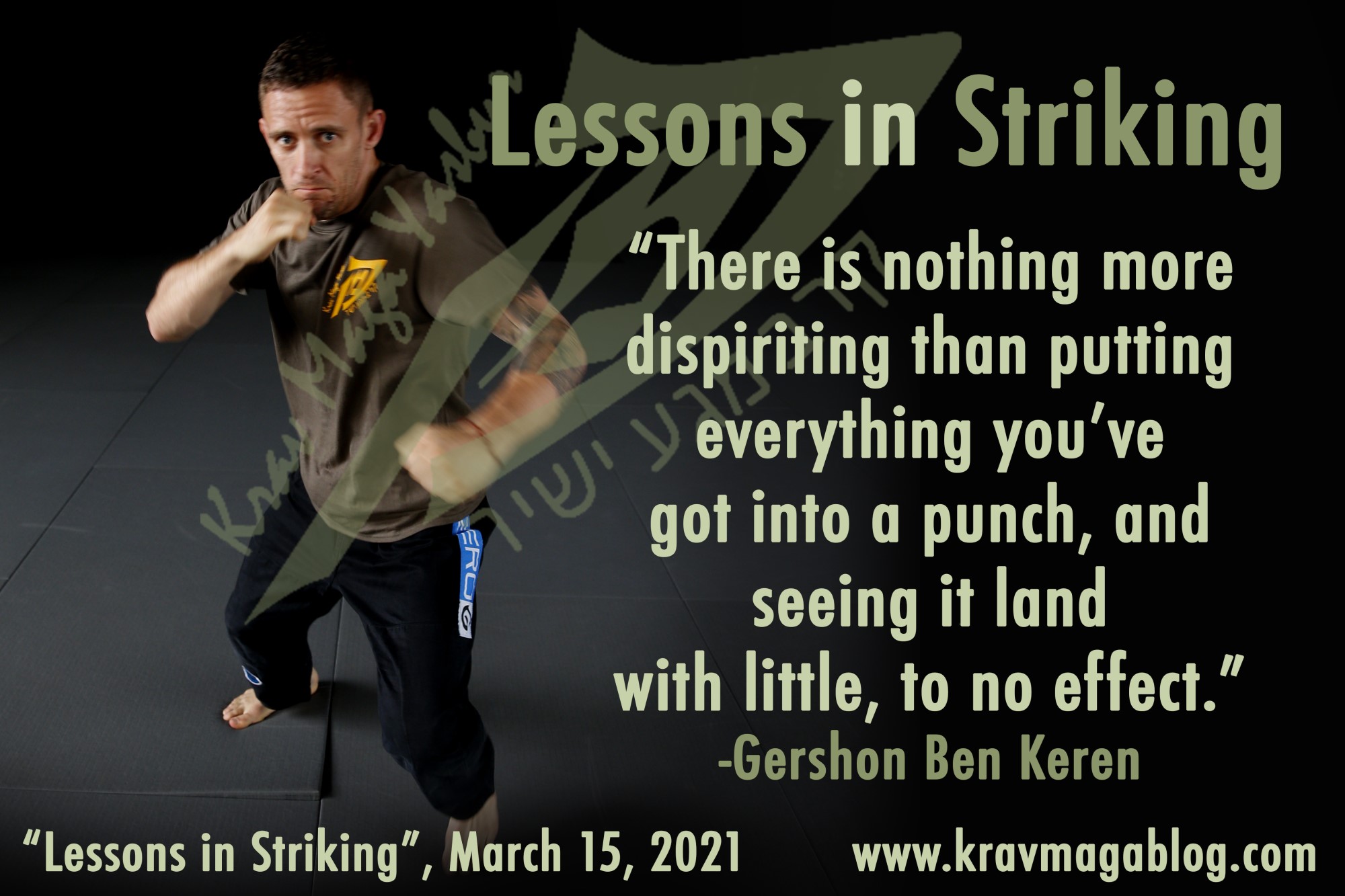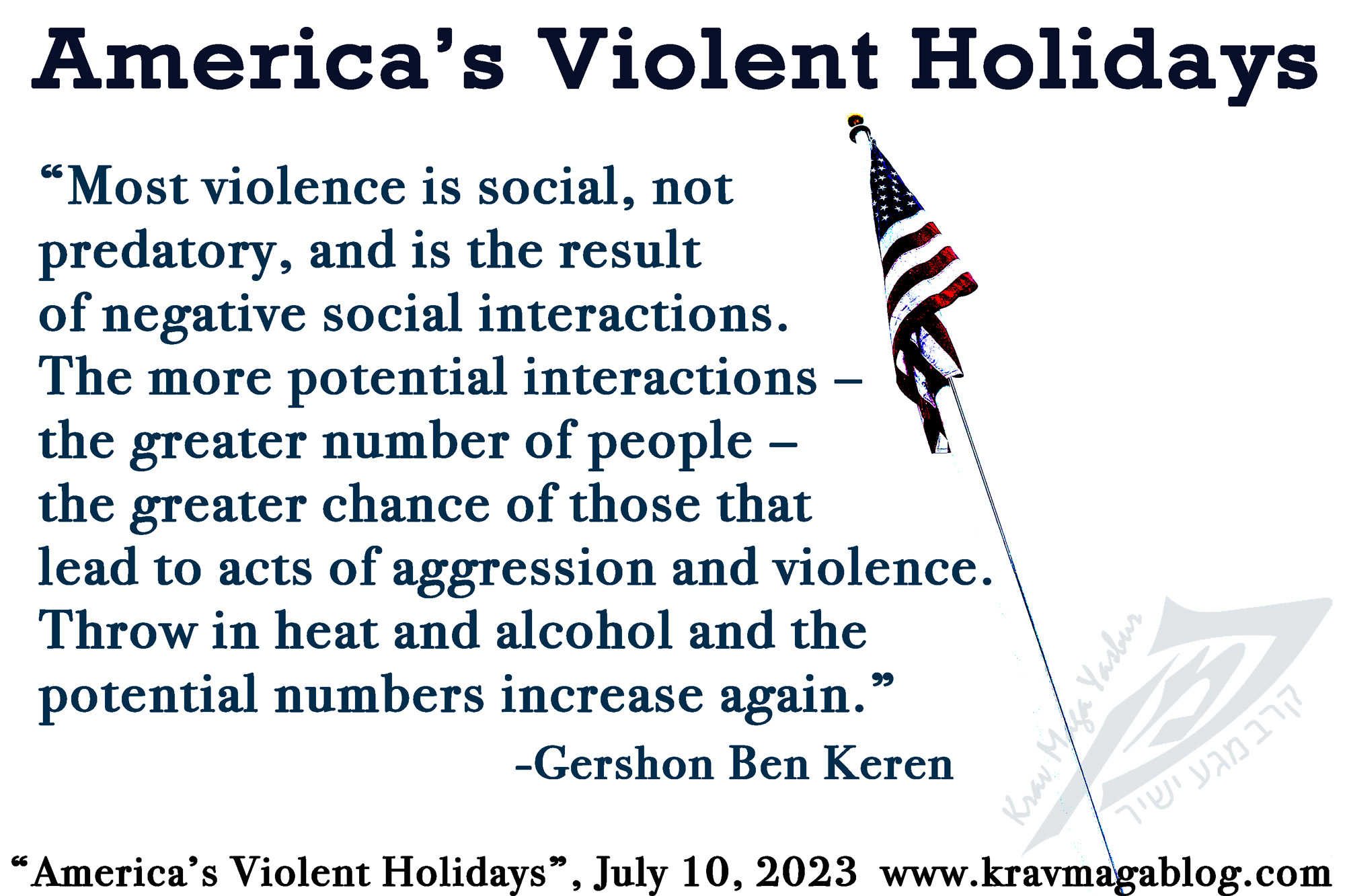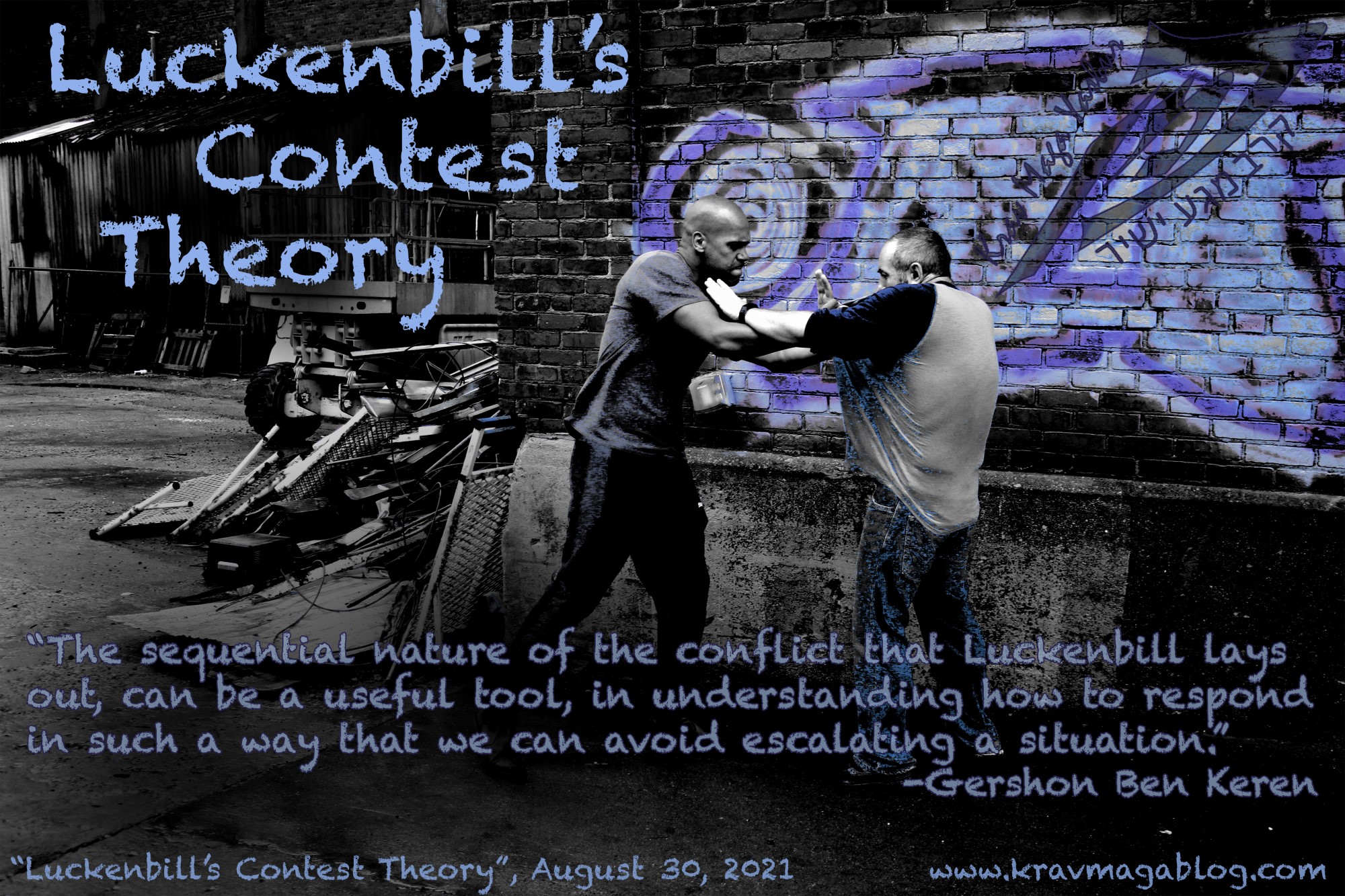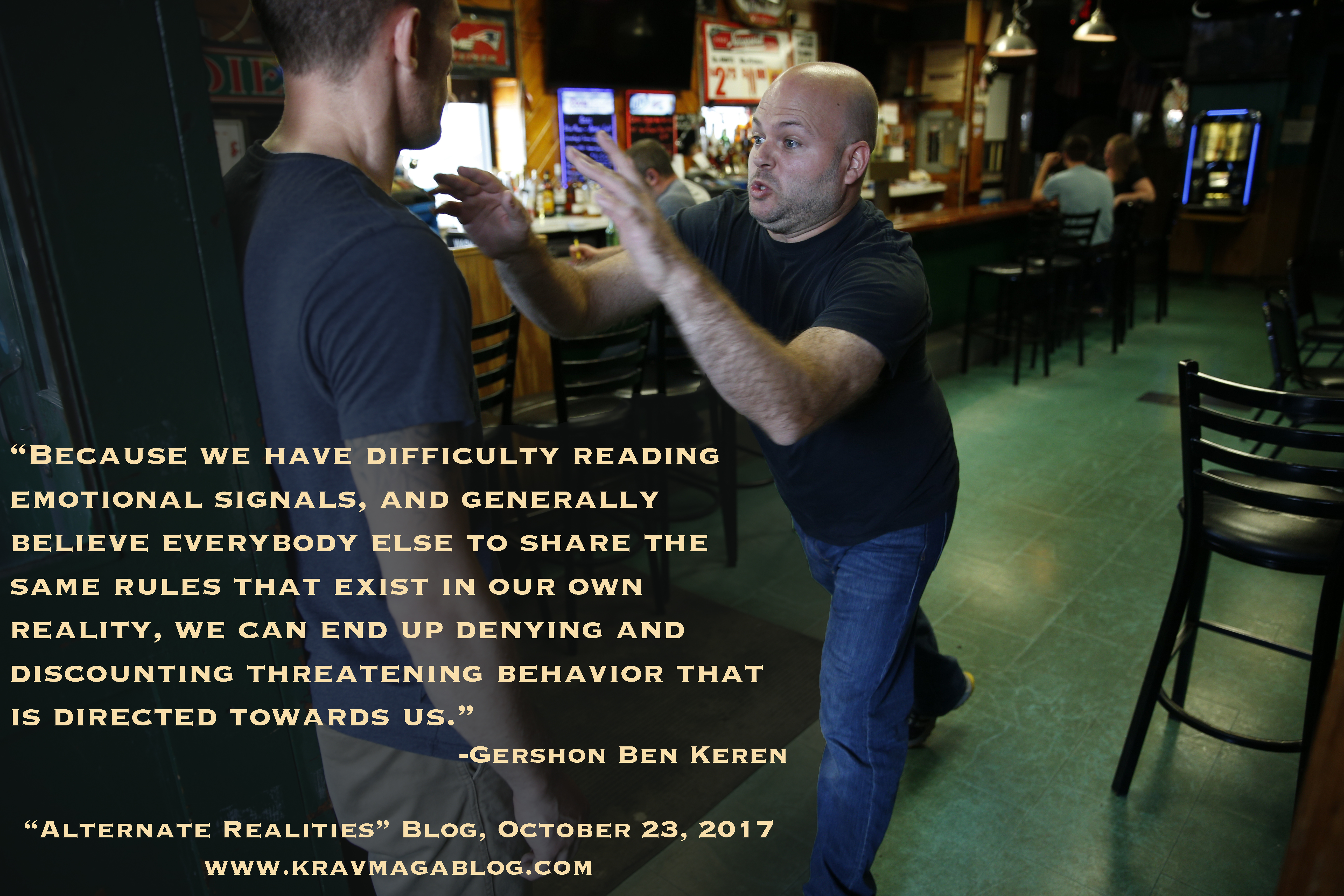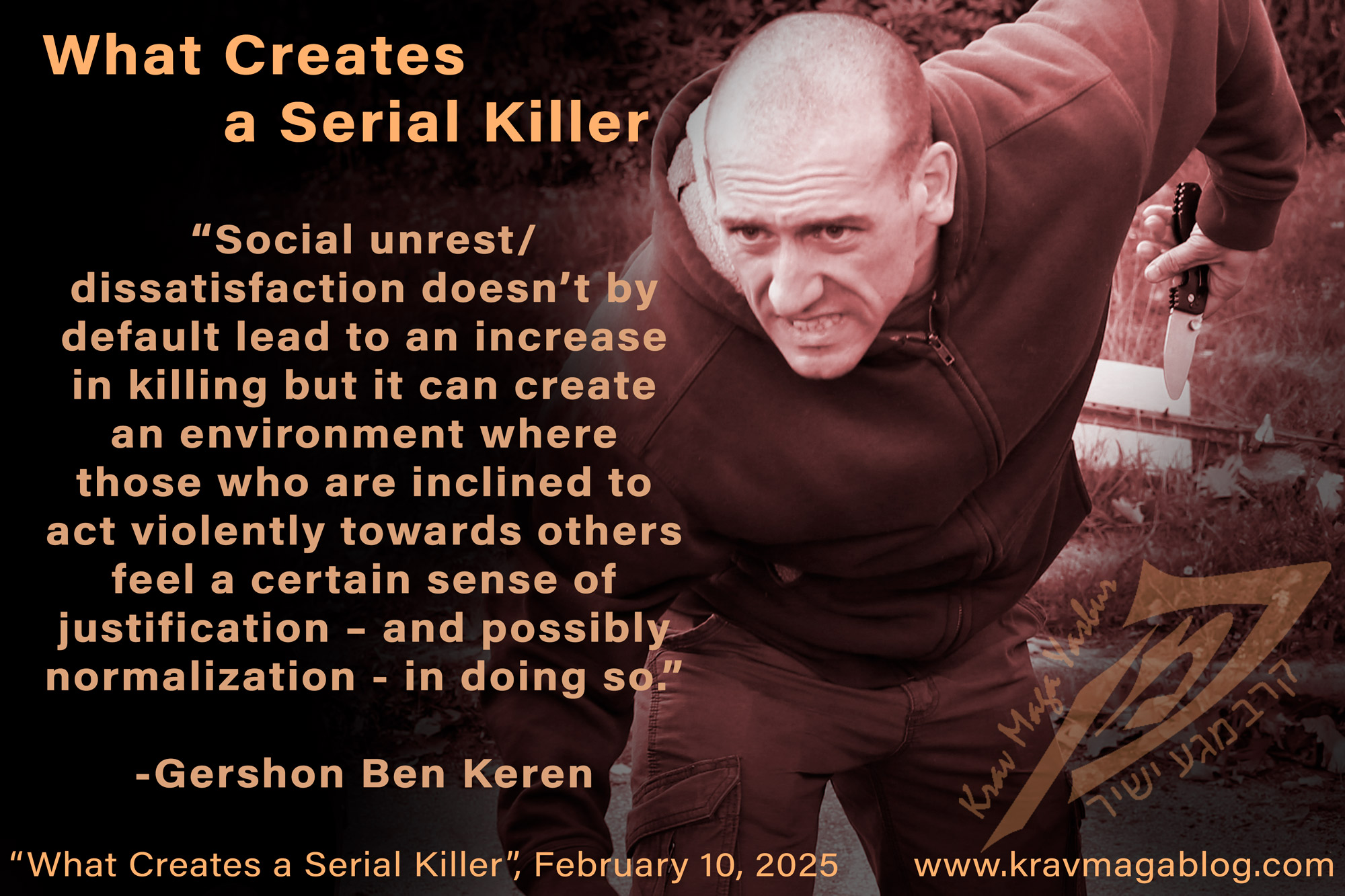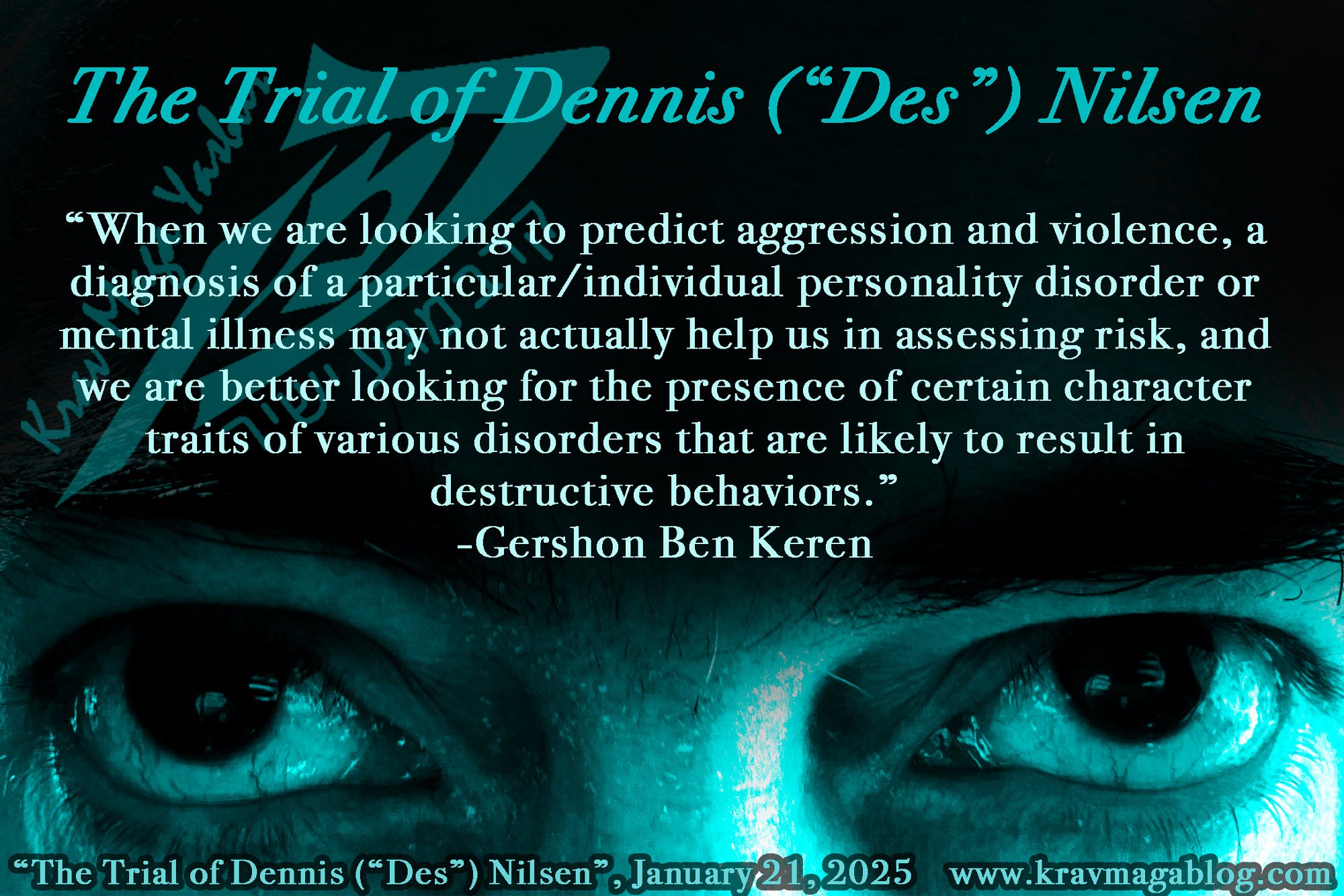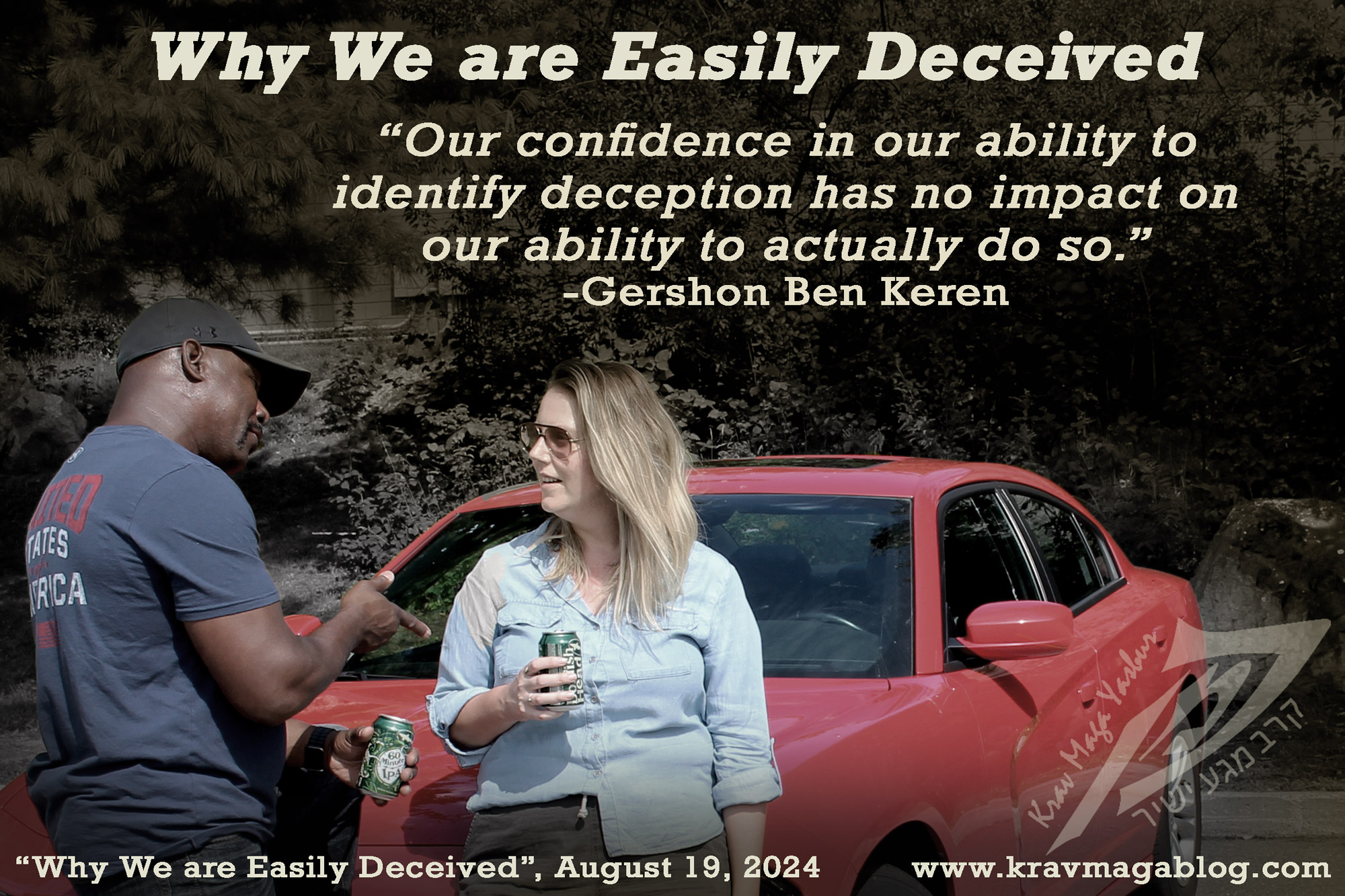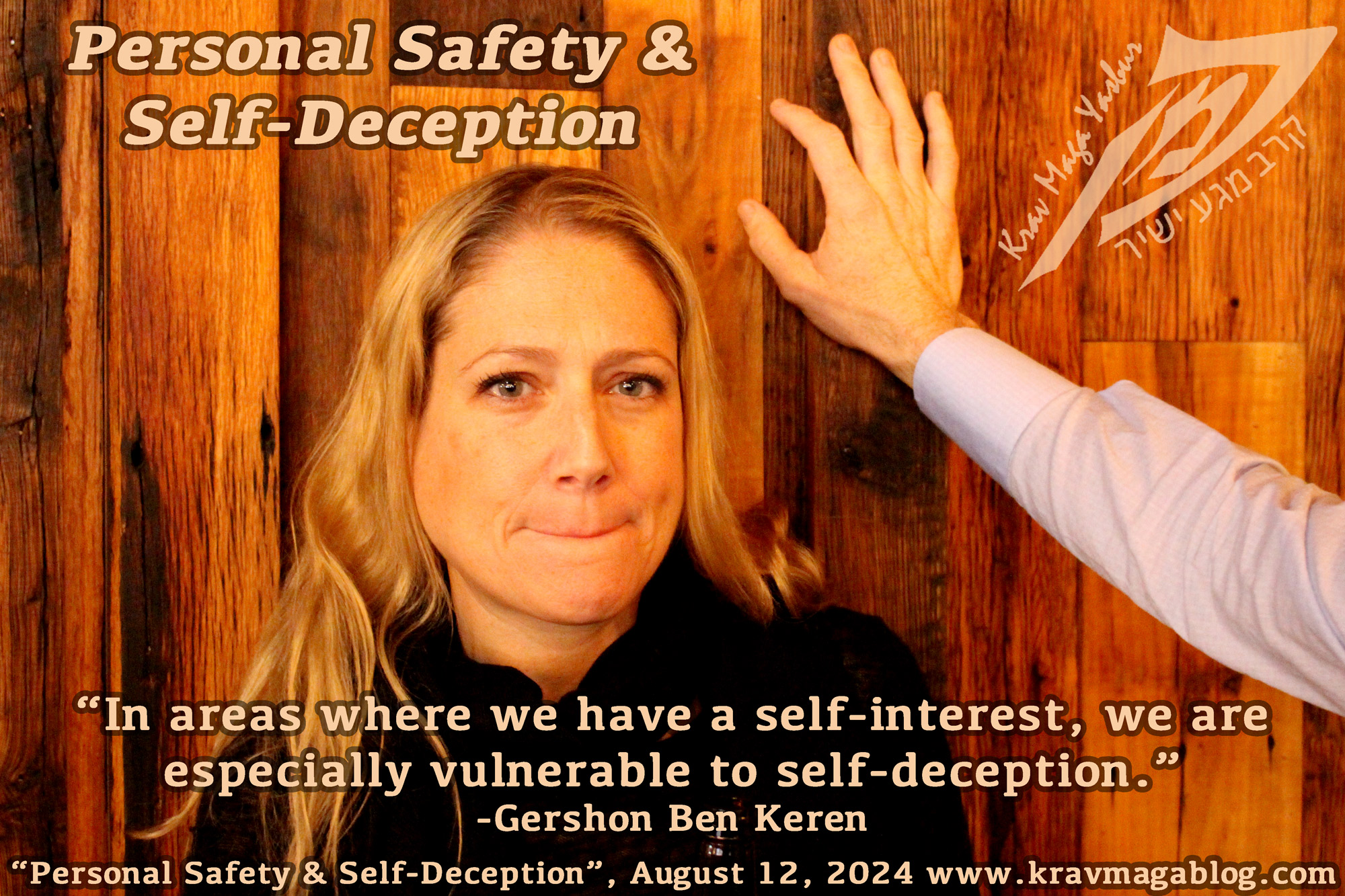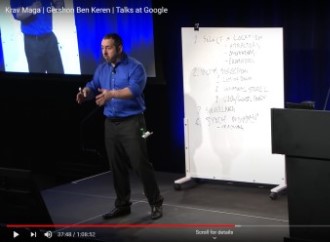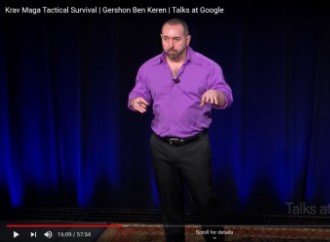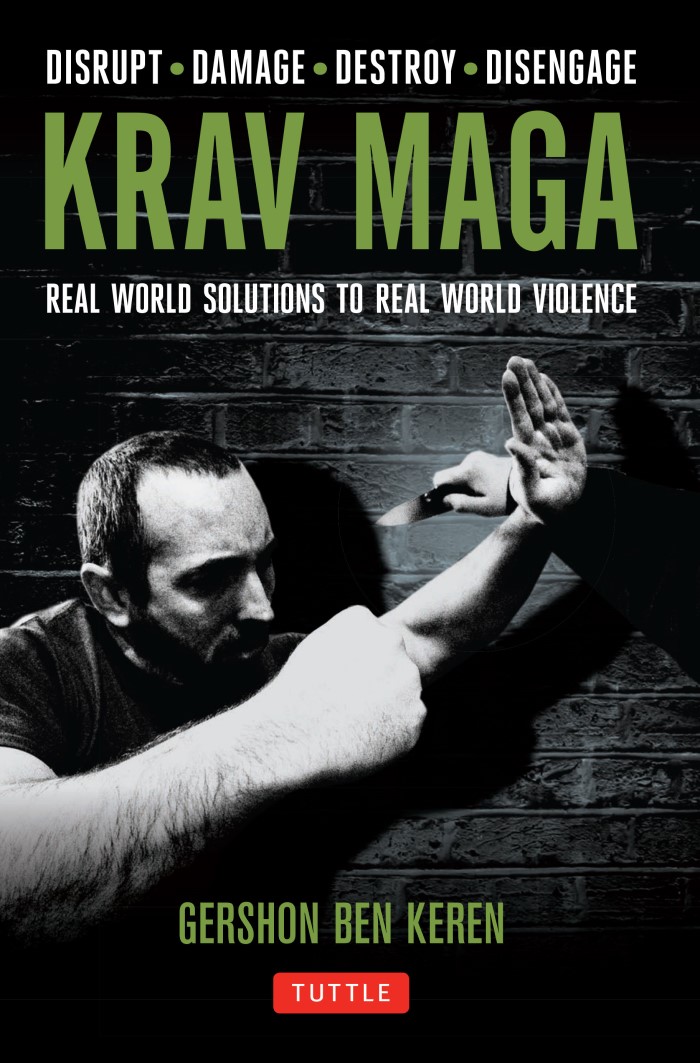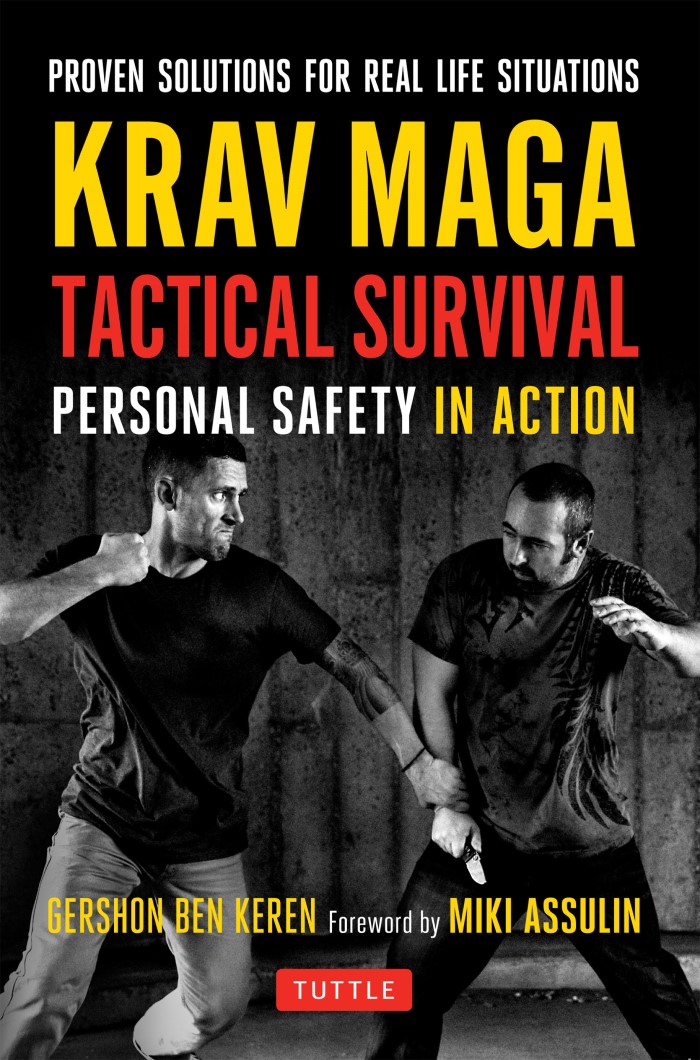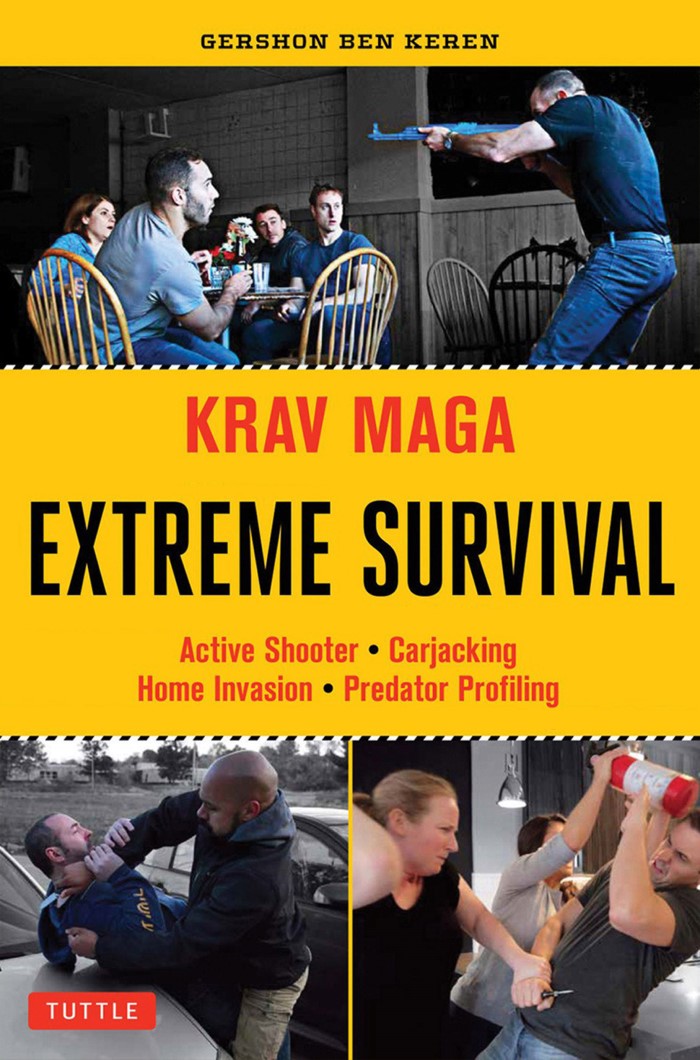Violence & Alternate Realities, is an article written by Gershon Ben Keren, a 5th Degree Black Belt in Krav Maga, who teaches Krav Maga in Boston, MA. He has also authored three Amazon best-Selling Books on Krav Maga.
We see the world as we “feel” it, and not necessarily as it is. If you feel angry, you are more likely to interpret somebody’s smile as an aggressive grimace, rather than as an expression of happiness; and vice versa. Our emotional state affects how we see the world, and those within it. I have seen this happen when working door and bar security, where somebody in a good/happy mood, causes another person to become aggressive, by knocking into them, spilling a drink over them, etc., and is unable to read the intensity of the other person’s anger; sometimes believing their expressions of rage, to be part of a joke which is being played on them – after all, everybody is just having a good time. We also have a tendency to think that other people think like us, and share the same values as we do e.g. because we wouldn’t become physically violent if somebody spilt a drink over us, we don’t expect other people to become overly aggressive towards us, if we do the same to them. Because we have difficulty reading emotional signals, and generally believe everybody else to share the same rules that exist in our own reality, we can end up denying and discounting threatening behavior that is directed towards us.
Sometimes it is very clear that another person’s reality is different to ours. If we are in a biker bar, or a pub with a reputation for violence, we are probably going to accept that the “rules” around, and the consequences for, spilling a drink over somebody are different, to those we’d expect in a family pub. However, even in the most respectable of establishments, we may still run into someone who is predisposed towards using violence as means of righting a perceived wrong i.e. they may feel justified to use violence, and that there are no satisfactory alternatives available to them (this is their reality) – part of the process of de-escalation and conflict resolution, is to remove that justification, and help our aggressor determine alternative outcomes that would resolve the incident for them. It would be dangerous to underestimate a person’s readiness for violence, simply because in the same situation we would act differently.
Sometimes an aggressor’s alternate reality, is so different to ours, we believe that they must be misreading a situation entirely. Imagine walking into a bar you’ve never been to before. To all appearances, it seems respectable, is in a good part of town, and there’s nothing to indicate that it’s an establishment with a history of violence - if a place has many past incidents of violence and fighting, these are a good predictor that there will be future occurrences. It’s early afternoon, and the bar is almost empty. You go to the bar, pull up a stool, and order a drink. About 20 minutes later, somebody taps you on your shoulder and informs you that you’re sitting in their chair. You look around at all the empty seats, and tell them, that you were here first, there was nobody sitting here when you arrived, and that you’ve been sitting here for the past 20 minutes. Once again, but more emphatically this time, they inform you that you are sitting in their chair. At this point, you’re becoming more confused, and a little bit angry, that this person is trying to take your chair away from you – you arrived first, it’s your chair. Suddenly, you feel a punch to your kidneys, and when you look down your shirt and trousers are covered in blood; you’ve just been stabbed (knife stabs will often feel like punches). In your reality, this response may seem excessive but to your aggressor it may seem completely justified, and they may feel that there were no other alternatives available to them.
In your reality, chairs are allocated on a first come, first served basis – you got the chair first, therefore it should be yours, and the other person should find another, regardless of whether they want it or not. However, in your attacker’s reality, the allocation of seats is based on “tenure”; for the past twenty years, they’ve sat in that exact same place, only to find you sitting there when they came in – you were sitting in their chair. When you kept refusing to move, and arguing back that it wasn’t their chair, they began to run out of options to get you to move, and so resorted to violence. It is worth remembering whenever you are in a dispute over something that somebody believes is there’s – whether it’s a chair, a parking space, or something else – that people will try, on average, three times harder, to get back what they’ve lost than to acquire something new. Your aggressor had a 20-year investment in that stool, much greater than yours. This may seem like an extreme example/situation, however where I come from in Glasgow, there are families who have tables and booths in certain pubs and bars, which they’ve always sat at/in, and anyone who was found “trespassing” in their space, would be dealt with violently (and I know from my travels that Glasgow isn’t the only city, where this type of behavior occurs).
In 2016, a man in Boston was shot, over a parking space. There is a practice in Boston of using “space savers”, to reserve parking spaces after a snowstorm i.e. after you’ve dug your car out in the wake of a storm, you put a garden chair or similar into the empty space, to let other drivers know they shouldn’t park there. Whilst it’s not illegal to do this in Boston, it’s also not a legal right that you have; so somebody can remove your space saver and park there – and of course people do, which can lead to aggressive and sometimes violent confrontations. Because the realities of both parties surrounding the validity of “space spacers” are different, there is no common ground for compromise. The only way for the dispute to be resolved without violence, would be for one person to back down – and in the 2016 incident, when this didn’t happen, one person got shot. It is likely that before the gun was pulled, there was a period of dialogue, with both parties explaining to each other, why the other person was wrong. Unfortunately, deeply held beliefs and convictions, are unlikely to be overturned during such a dispute. If somebody believes they have a right to a parking space, or a bar-stool based on their reality, it is very unlikely that you will be able to convince them otherwise, especially when they are highly emotional.
It's a popular saying that you sometimes have the choice to be right, or to be effective. In your reality, you may be right, but that doesn’t mean in another person’s you are. To be effective, in these situations, and avoid a physical confrontation, you have to put ego aside and give up the chair, or the parking space, etc. Many people believe that this makes them look like a victim, and that it might encourage the other person to act violently towards them. This may be the case in some instances, when the individual was looking for any excuse to act violently towards you, but in those situations, you would be fighting for survival (not ego), which will allow you to defend yourself without doubting whether you are right to do so – in a fight for survival, everything is on the table.
0 COMMENTS